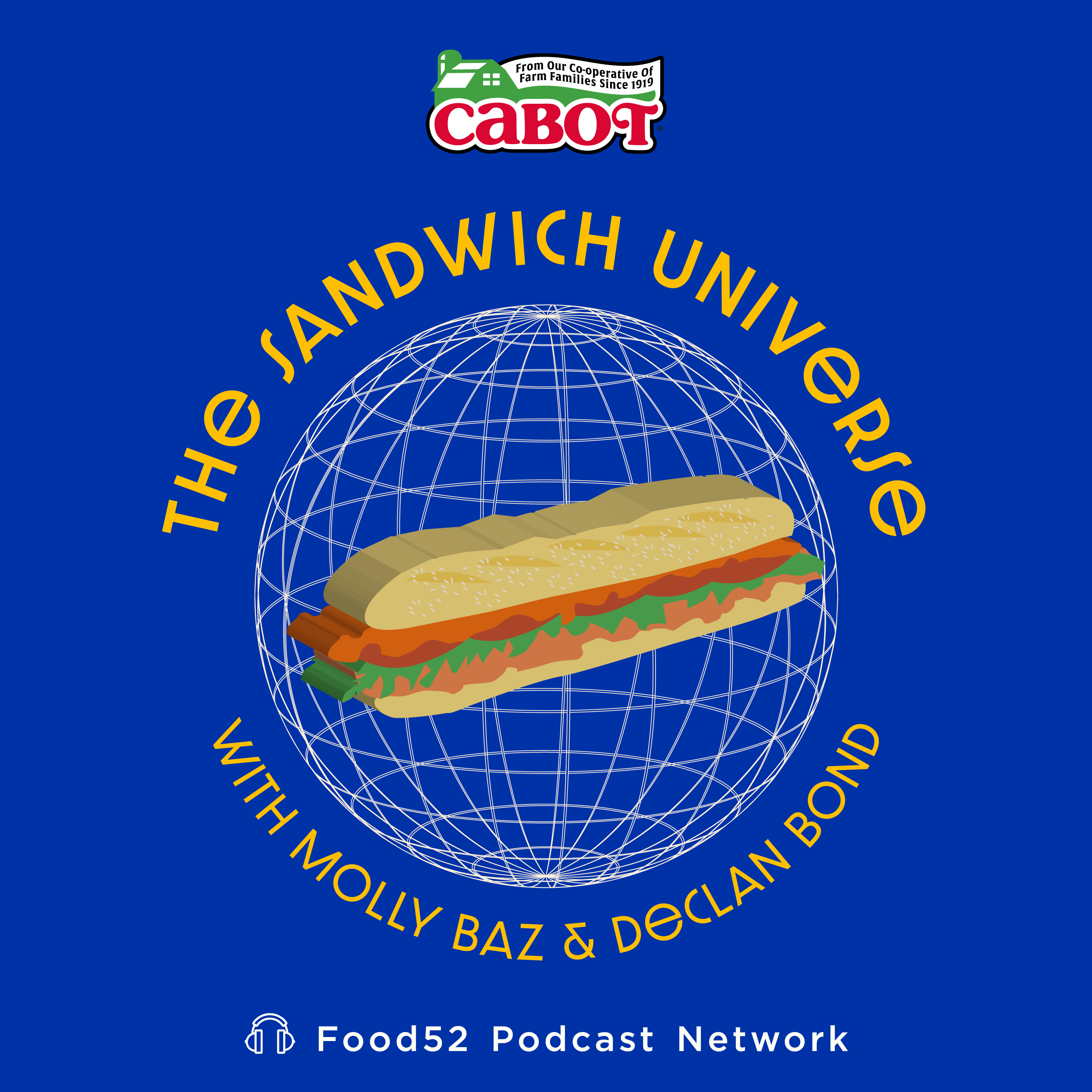Diwali
A Dark Chocolate-Topped Indian Mithai That Breaks from Tradition
On Diwali, a five-day Indian holiday that marks the Hindu New Year, family members and friends exchange elaborate gift boxes of mithai—an umbrella term incorporating a huge variety of confections made in northern and western India. Mithai have both celebratory and religious significance; they symbolize joy and ritual to many during the holiday season.
For Surbhi Sahni, Michelin-starred pastry chef and co-owner of Bittersweet NYC, a catering company specializing in wedding cakes and Indian-inspired confections, Diwali is also a time to indulge her childhood love of these sweet treasures. Burfi, made with milk solids, sugar, and nuts, are consumed on nearly every South Asian celebration. They are milky in flavor and fudge-like in consistency. Sahni's Indian-inflected mithai creations are seeped both in traditional techniques and unexpected flavors—from caramel burfi, a rich, grainy mithai whose flavor is enhanced with fleur de sel, to dal halwa burfi, a lentil and fennel seed mithai glazed with white chocolate and garnished with chopped pistachios.
Sahni began experimenting with making these South Asian sweets just three years ago. A friend asked her to make mithai to celebrate a baby shower, and Sahni, an experienced and much-lauded pastry chef who has worked in kitchens in her native India and in New York City, turned to family in India, blogs, and YouTube to teach herself the basics of mithai-making. All mithai are made with some combination of flour, sugar, nuts, legumes, and milk or khoya (a semi-solid dairy product made by slowly boiling milk until it thickens).
Her knack for flavors, combined with years of testing and perfecting, has made her a modern master of the craft. “There is so much scope to experiment [with mithai-making],” said Sahni. “We’ve only been making burfi and ladoo,” she added, but would like to branch out into sweets such as Bengali sandesh and rasgulla, spongy balls of cheese simmered in and then served in sugar syrup.
In preparing boxes of sweets for distribution for this Diwali (on October 19), Sahni was joined this weekend in her commercial kitchen in Yonkers by the women of The Tiffin Project, a new venture directed by Sahni that trains low-income South Asian immigrant women for careers in the culinary industry in New York City. The Tiffin Project was founded a year ago in collaboration with Sapna NYC—a nonprofit dedicated to increasing opportunities for South Asian immigrant women more generally.
“The thing I love about making food [with others] is the relationships and the people and the friendships, and the idea that we connect with each other through something that I am making or they are making with me,” said Sahni. During the year, Sahni supervises trainees at Harlem's Hot Bread Kitchen, a nonprofit that provides women opportunities to cater meetings, retreats, and cocktail parties, as well as seasonal employment in Sahni’s kitchen. Of the three women in the first cohort, two have found full-time employment in the culinary industry, according to Sahni. The Tiffin Project is currently recruiting a new class of trainees.
Sabera Begum, who immigrated to the United States from Dhaka, Bangladesh, in October 2015 and now lives in the Bronx, was a member of The Tiffin Project’s inaugural class. She values Sahni’s expertise and mentorship. “She has provided me with many opportunities,” said Begum in Hindi. “I have learned how to cook so many new things, and in ways so different from how I cook at home.”
Over the course of four days, Sahni, Begum and the rest of Sahni’s staff made thousands of mithai for both mail orders and Bittersweet NYC’s annual Diwali pop-up at 2Beans (the 100 Park Avenue and 817 Avenue of the Americas locations). It is a time-intensive process, but one that is special—almost sacred—to everyone involved. “I just love it,” said Sahni. “Mithai is everything.”
Bittersweet NYC’s annual Diwali pop-up will be held on Oct. 18, 19 and 20 from 12 p.m. to 7 p.m. Prices range from $15 (for six pieces) to $48 (for 24 pieces). Here, Sahni shares her recipe for coconut orange burfi, which, like many of Sahni’s sweets, combines rabri (reduced milk), khoya, and chocolate. It’s not her most finicky of recipes—it’s no-bake, after all—and completely worth attempting at home, if you have the time. The combination of Indian and Western flavors here indicate Sahni’s extensive experience as a pastry chef and her commitment to her South Asian heritage and community.
| 1 | cup heavy cream |
| 1 | cup milk |
| 2 | oranges |
| 1/2 | cup sugar |
| 1 | pound white chocolate (chopped) |
| 1 | pound khoya (grated) |
| 6 | ounces unsweetened coconut powder, plus 2 tablespoons |
| 1/4 | teaspoon powdered green cardamom seeds |
| 5 | ounces semi-sweet dark chocolate |
| 2 | ounces butter |
| 1 | cup heavy cream |
| 1 | cup milk |
| 2 | oranges |
| 1/2 | cup sugar |
| 1 | pound white chocolate (chopped) |
| 1 | pound khoya (grated) |
| 6 | ounces unsweetened coconut powder, plus 2 tablespoons |
| 1/4 | teaspoon powdered green cardamom seeds |
| 5 | ounces semi-sweet dark chocolate |
| 2 | ounces butter |
For more info on Bittersweet NYC's pop-up, head here.

Join The Sandwich Universe co-hosts (and longtime BFFs) Molly Baz and Declan Bond as they dive deep into beloved, iconic sandwiches.
Listen Now





See what other Food52 readers are saying.